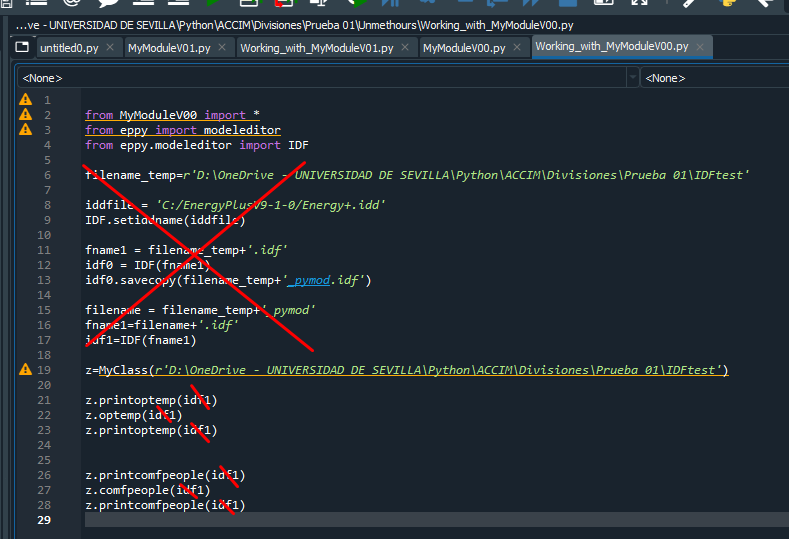Making a python module based on eppy
Hi everyone, I’m a newb with Python and Eppy (apologies if I’m not using the proper programming terms), and I’ve been trying to make a class with different functions to work with Eppy. So, you can see in the files attached 2 modules (MyModuleV00, which works but not the way I’m trying to, and MyModuleV01, which is the one I’m trying to make work), 2 scripts using them (Working_with_MyModuleV00 and Working_with_MyModuleV01), and one IDF file to test it. So, what I’m trying to is to simplify Working_with_MyModuleV00 by avoiding the use of the variable idf1 in each function, or even avoiding all the lines above z=MyClass(…

When I run Working_with_MyModuleV01 line to line, everything seems fine, however, when I open the new idf, there is no change with respect the older one. The functions should modify the existing People objects in the IDF, and add the object ZoneControl:Thermostat:OperativeTemperature for each zone in case there’s no such an object in the model. Can anyone help me please?
Thanks in advance.
Files attached: https://drive.google.com/file/d/1o8g5...





